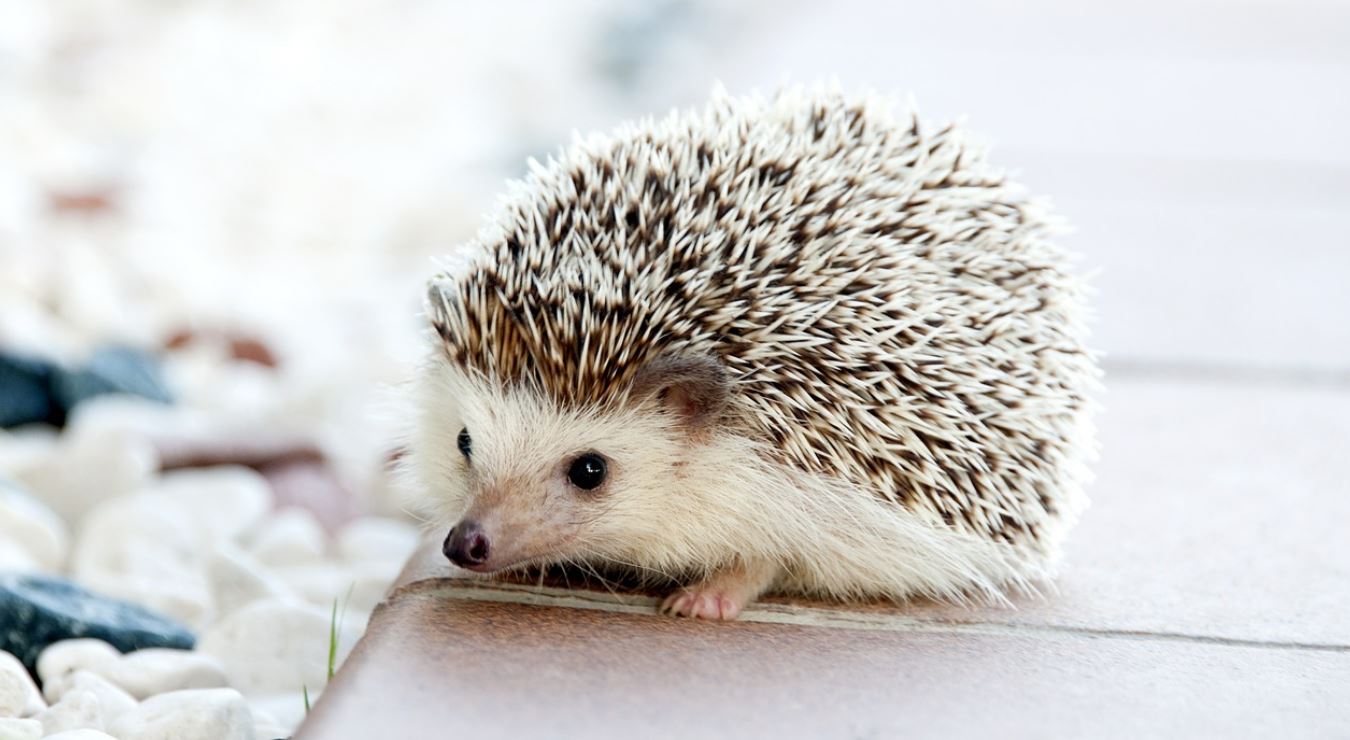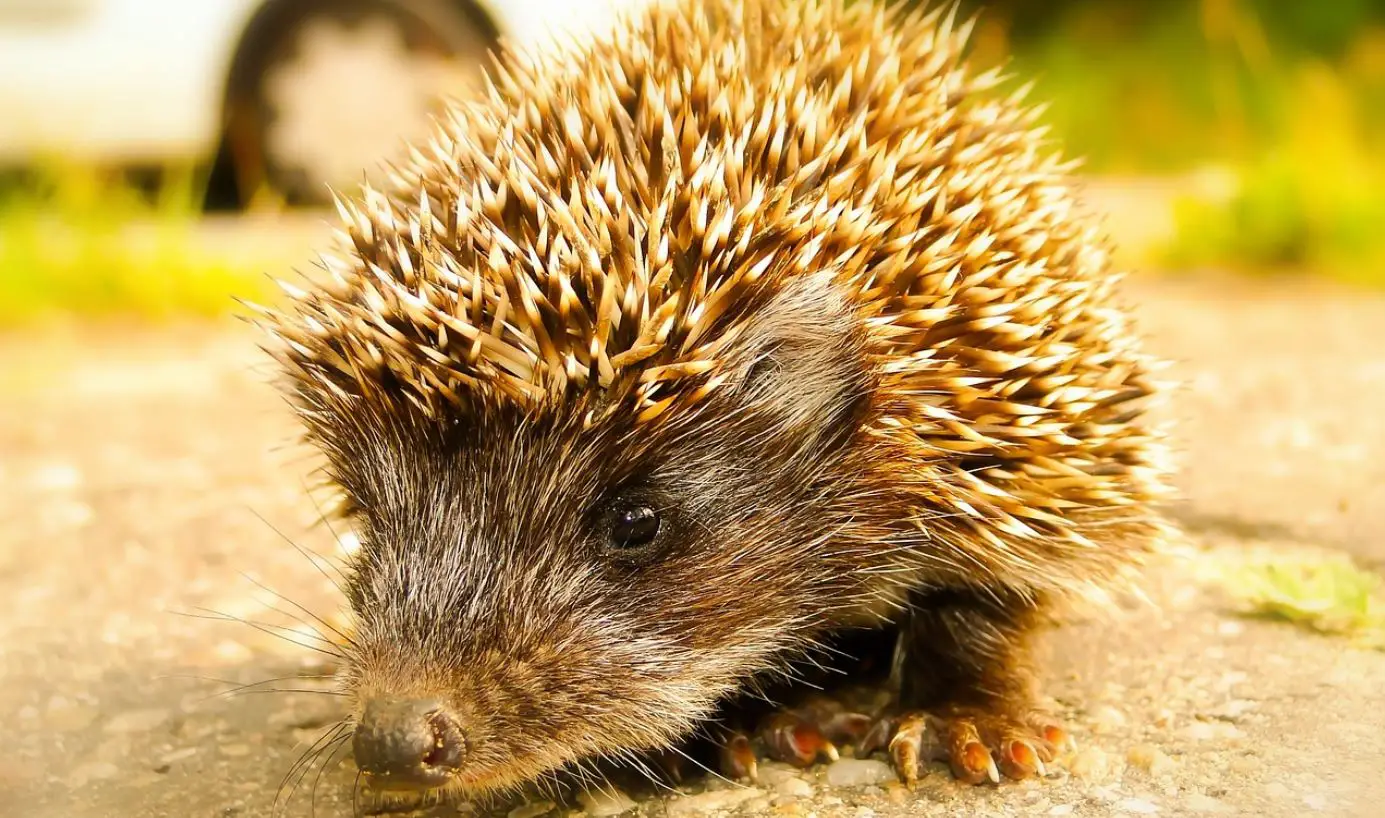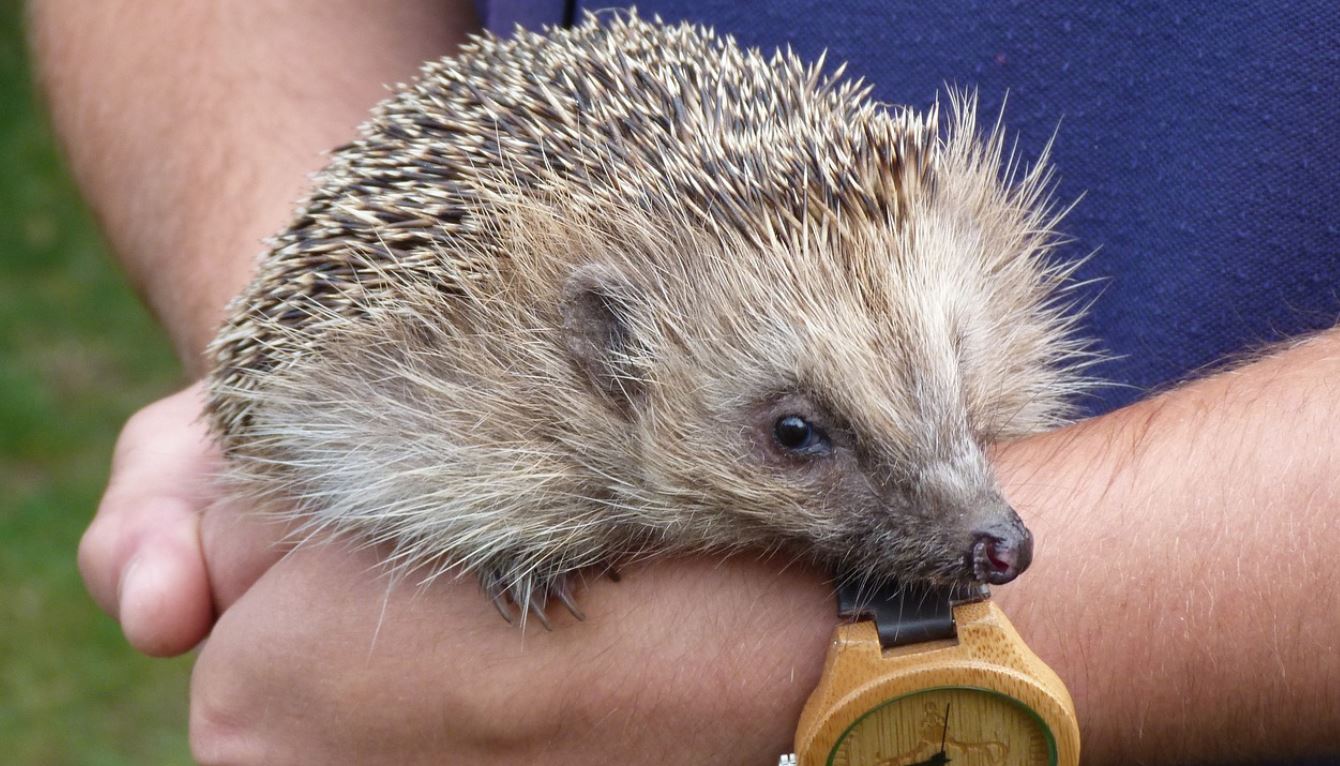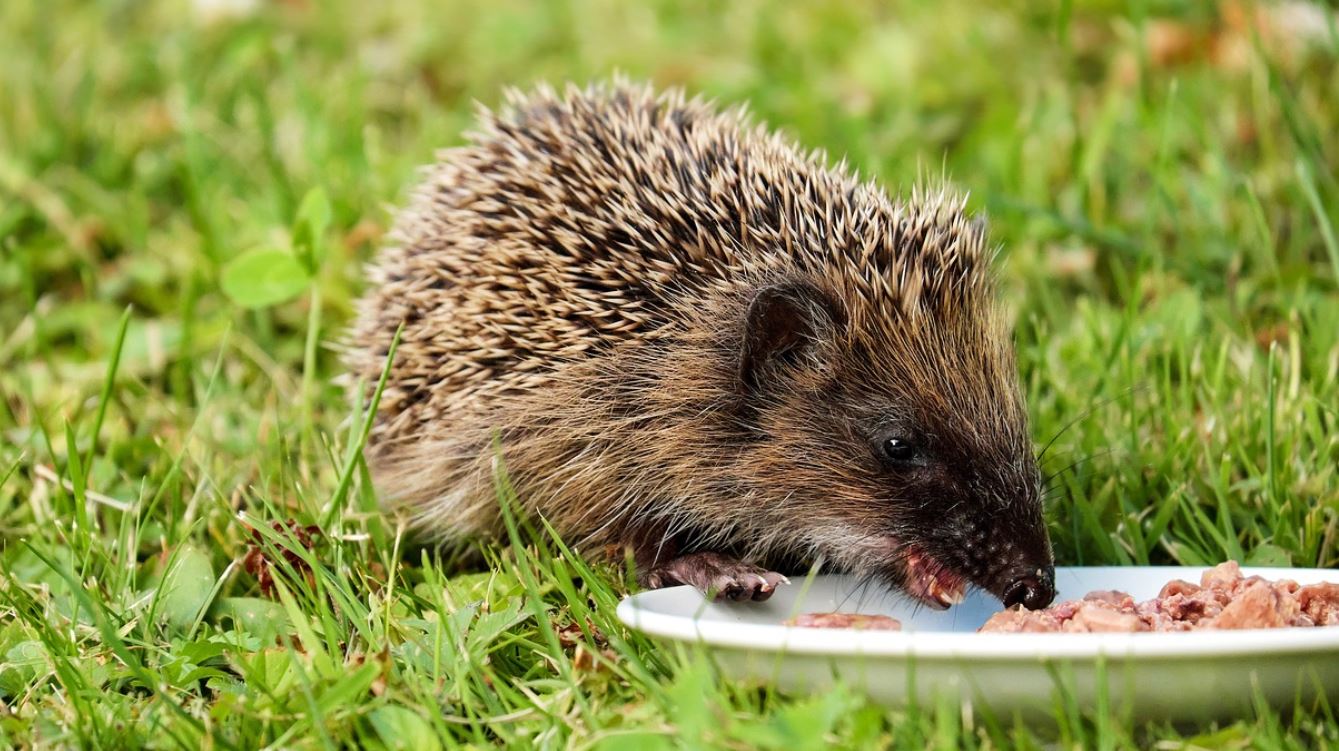Hedgehogs can be put in the same category as other small mammals that are a viable option for a pet. If you want a unique animal for a pet, a hedgehog is a perfect choice.
Intro to Hedgehogs
Hedgehogs aren’t classified as rodents, and your hedgehog won’t bark, meow, or disturb your neighbors with howling when left alone. A hedgehog is a quiet pet except when running on his wheel or exploring his cage.
Are They A Good Beginner Pet?
Hedgehogs are a good beginner pet as long as you are responsible. You need to understand precisely what kind of pet you’re buying. You need to make your hedgehog feel safe and secure. You need to have the right habitat for them.
What Are the Different Types of Hedgehog?
There are several types of hedgehogs you can choose as a pet. African Pygmy is one of the favorite choices. An African Pygmy is a hybrid of a white-bellied or four-toes hedgehog and the Algerian hedgehog. The reason why it’s called a pygmy is that it’s smaller than the European hedgehog.
Besides the European hedgehogs, there is the Egyptian long-eared hedgehog and the Indian long-eared hedgehog. Also, there have been the breeding of hybrids like the albino and pinto varieties.
Is the African Pigmy the Best Pet?
If you would like a pet that interacts with you and wants to spend time with you, an African Pygmy hedgehog isn’t always warm and fuzzy. Since hedgehogs are nocturnal, they sleep all day. Hedgehogs don’t always like to cuddle, and some are indifferent to human affection.
But, if you think they would make an excellent pet to have and are willing to be responsible for the care and upkeep, then a hedgehog would be a good pet for you.
What to Look for When Buying One?
When you buy your hedgehog, you should buy only one since they are of a solitary nature and don’t care to share a cage. Unless you’re going to breed hedgehogs, don’t buy a male and female. A female hedgehog can start breeding at 8 weeks, but it’s advisable to let her age 5 months before breeding.
When you’re looking for the perfect hedgehog for you, there are some characteristics and health checks to need to look for:
- Eyes: The eyes should be wide open, bright, nice, round, and without discharge.
- Nose: The nose shouldn’t be running and be clean.
- Ears: The ears shouldn’t have any discharge or crustiness from them. Once in a while, a sibling may get hold of an ear and chew on it. But, if it’s healed, then it shouldn’t be an issue. Also, the ears should be short and clean.
- Fur: The fur on the potential hedgehog should be soft and not have mats in it.
- Spines: Check to make sure the spines are all there without bare spots. Bare spots mean the animal isn’t healthy. Look for fleas, mites, or any crustiness on its back.
- Body: The body should be pleasantly plump without being fat.
- Pen: Look around the pen for any diarrhea or green droppings. If you see any, then move onto another animal.
- Pick up the hedgehog and place it on a flat surface to watch it walk. The hedgehog should move between a walk and a shuffle. Is it wobbling or having a problem staying upright? If so, move on.
- Breathing: The breathing shouldn’t rattle when it breathes in and out. Be aware that hedgehogs do make noises like cheeping, chirping, and purring not to be mistaken for a rattle.
Another thing is to make sure that you are buying from a reputable breeder. Don’t buy a hedgehog from a backyard breeder or a pet store. It’s because these hedgehogs usually have a poor temperament and die young because of inferior genetics.
When you buy from a reliable breeder, they don’t sell a baby hedgehog until it’s of age. Plus, a young baby hedgehog will bond more strongly with you. Research the breeder you choose thoroughly and ask the questions listed below:
- Are the parents pedigreed? Check the pedigree on the hedgehog you’re considering for wobbly head syndrome and cancer. You can also check with the breeders listed on the lineage to be sure that pedigree goes with the hedgehog you’re looking at.
- What are they’re breeding ethics: Asking if inbreeding is practiced, how often the females are bred, and how soon are the babies sold? Baby hedgehogs are weaned when they’re six weeks but shouldn’t be sold until seven weeks.
- Socialization: Ask what handling methods the breeder uses to socialize the hoglets. Ask them how often and how long do they socialize them and what the babies are exposed to.
- License: If the breeder has three or fewer breeding females and they can sell hedgehogs without a USDA license.
- Care: Ask how often they breed their females since females shouldn’t be bred more than three times a year. Ask how regularly the cages are cleaned, what kind of cages are used, how often the hedgehogs are fed. Also, ask what type of stimulation is provided.
- Guarantees: Find out if there are guarantees or replacements if your hedgehog has a genetic illness or defect. A reputable breeder will offer a lifetime replacement for wobbly head syndrome and a six-month guarantee on genetics.
Should I Get A Wild One OR At A Pet Store – What’s the Cost?
You should never buy a wild hedgehog because it isn’t domesticated and will be unhappy being caged. You can buy one from a pet store, but because there usually isn’t a pedigree, you don’t know what you’re getting. Buying from a breeder is the always best option.
Hedgehog prices vary from $70 to $250. The prices depend on the age, color, breed, and temperament of the hedgehog.
What Habitat Do They Need?
When buying a hedgehog cage, don’t buy one with a wire floor. The rest of the pen can be wire, but a wire floor will hurt your pet’s feet. Don’t buy a cage that’s multi-level without secure protection on the sides of every level. Hedgehogs have very poor eyesight and can fall from heights easily.
The cage you buy needs to be escape-proof and as large as possible. The cage needs to be lined with paper-based bedding or newspaper. Wood shavings or litter meant for cats shouldn’t be used. If your hedgehog eats it, he could get a gastrointestinal obstruction.
A small litter box can be placed in the cage, and your hedgehog can be taught to use it. The litter box needs to be lined with paper and placed in a cage corner.
What Accessories Do We Need to Own A Hedgehog?
When purchasing the fluffy bedding, put more than two inches in the cage so your hedgehog can burrow. You need to have some type of box or enclosure that your pet can hide in. You can use, a pet igloo, PVC tubing, half log, wood box, or a tunnel, an exercise wheel is an added plus.
You will need to provide fresh drinking water. A stoppered water bottle is the cleanest choice and easiest. But, if your hedgehog won’t drink from it, then a heavy water bowl is the next choice. You will also need two bowls for eating, one for dry food and one for wet.
When finding a location to put the cage, avoid air conditioners, drafts, heaters, windows, and any other locations where the temperature would fluctuate. If the room temperature is between 75 to 80 degrees, your hedgehog will be healthy and content.
You need to place the cage where your pet will experience both day and night, even though he’s nocturnal. You can have the cage near a lamp or buy a light that’s especially for small animals and mount it on the cage.
What Do They Eat?
Hedgehogs eat a variety of food besides insects. They eat mealworms, fruits, vegetables, waxworms, and crickets. Hedgehogs also eat cooked meat, hedgehog or cat kibble, cooked eggs, and even pinky mice.
You may notice what looks like a spitball sometimes coming from your hedgehog. He will bite and lick something with his mouth that has a new scent. Then he will throw back his head and spit the saliva all over his spines with his tongue. This is called “self-anointing” and is perfectly normal.
Are They Diurnal or Nocturnal, and Why?
Since in the wild, a hedgehog’s food is available at night, that is when your pet will be most awake. Even though your hedgehog is domesticated, he will still maintain the nocturnal lifestyle. Your pet will sleep almost all day and run around on his wheel at night.
Do Hedgehogs Bond with Their Owners – Are They Affectionate?
If you buy your hedgehog young enough, it’s a good possibility your hedgehog will bond with you. Some hedgehogs don’t like to be handled, some don’t mind, and some are indifferent. It doesn’t mean that you shouldn’t handle him. You can buy a small animal playpen, so your pet has extra room to run around while you’re handling him.
What Will They Do If They Feel Threatened?
If your hedgehog feels threatened, he will curl up into a spiny ball. Once he curls up, he’s almost impossible to uncurl. Your pet will stay that way until he feels calm and safe. Don’t try to uncurl him manually because you can hurt his back.
Do Hedgehogs Bite and Are They Dangerous?
Hedgehogs aren’t dangerous, but sometimes they will bite because they’re curious. Hedgehogs are known for nipping people’s fingers who smoke or have salt on their hands. If your hedgehog bites due to experimenting with taste and smell, just move your fingers away.
A hedgehog may bite if his bedding is changed if he’s startled, if he’s in pain or if it’s a female protecting her litter. Your pet could also bite if he’s been overhandled.
Do Hedgehog Quills Hurt?
Hedgehogs aren’t little porcupines, but their quills can hurt if you are poked with them. If your pet is nervous until he gets used to being handled, hold him in a small towel until he calms down.
Do Hedgehogs Smell?
No, they don’t have any scent glands, but if the cage isn’t clean, they will pick up the odor of the cage.
Do Hedgehogs Need Baths?
You can bath your hedgehog from time to time.
Do Hedgehogs Like to Swim?
They do like to swim and will enjoy doing so during a warm bath. Your pet would enjoy swimming in a bathtub or sink as long as it’s disinfected after the bath.
What Health Problems Can They Have?
Hedgehogs can get fleas like most small mammals. A hedgehog is also susceptible to worms, pneumonia, and diarrhea. Some common diseases a hedgehog can develop are cancer, heart disease, or a fatty liver. If you notice quill loss, it’s a good indicator that something is wrong.
It’s Illegal To Own Hedgehogs In Certain States
In the states of California, Pennsylvania, Georgia, Hawaii, Washington D.C., and the five boroughs of New York City, it is illegal to own hedgehogs.
One reason is the health risk that hedgehogs cause. Hedgehogs carry salmonella and foot-and-mouth disease. The best thing you can do is thoroughly wash your hands frequently after handling your pet.
Too, hedgehogs, if released into the wild, could have a negative impact on local ecosystems, according to wildlife experts. Its because the hedgehogs would compete for habitat and food with the native species of the area.
Conclusion
A hedgehog can be an exciting and fun pet as long as you realize the care involved. You have to appreciate the nocturnal aspects of this pet to own one. You need to understand to bond with your pet, he will need to be handled, and given time and attention. If this is done, then your hedgehog will thrive and be interactive with you.
For more information on hedgehogs, check out the link below:
https://www.youtube.com/watch?v=gKihpcxC1V4
references:
https://ultimatepethub.com/owning-a-hedgehog-hedgehogs-as-pets-pros-and-cons/
https://pethelpful.com/exotic-pets/raising-hedgehogs
http://www.henryshedgehoghaven.com/good-tips-on-buying-a-hedgehog.html
https://hedgehogged.com/do-hedgehogs-make-good-pets-15-things-to-consider-before-buying/
https://www.thesprucepets.com/what-do-hedgehogs-eat-4588705









